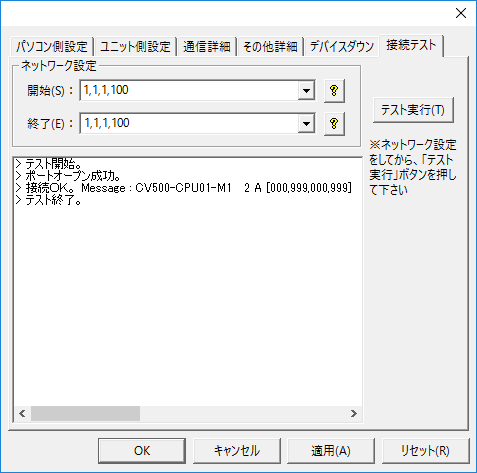overview
This is a setting example for connecting to the CVM series via Ethernet. In this example, communication is performed using the IP address table method.
Model used
item |
Model etc. |
PLC |
CVM1-CPU01-V2 |
Communication Unit |
CV500-ETN01 |
Configuration environment
item |
environment |
OS |
Windows7 Professional 64Bit |
tool |
CX-Net Ver 3.5.5.0 |
CX-Programmer Ver9.51 |
Configuration details
item |
setting |
Setting items |
Configuration Example |
PLC side settings |
Setting with switches and tools |
IP address |
192.168.0.100 |
Subnet mask |
255.255.255.0 |
||
Port number |
9600 |
||
FINS Network Address |
1 |
||
FINS Node |
100 (the end of the IP address) |
||
IP address conversion method |
IP address table method |
||
PC settings |
Unit Settings |
IP address |
192.168.0.1 |
Port number |
9600 |
||
Folder and communication test settings |
Source Network Number |
000 |
|
Source Node |
999 |
||
Destination network number |
000 |
||
Destination Node |
999 |
* Most of the settings on the computer will be adjusted to match the settings on the unit.
|
In this connection example, the IP address conversion method is the "IP address table method." |
PLC side settings
Configure the settings for "CVM1-CPU01-V2". Settings are made using the switches on the bottom and "CX-Programmer".
1.Set the front switch as follows:
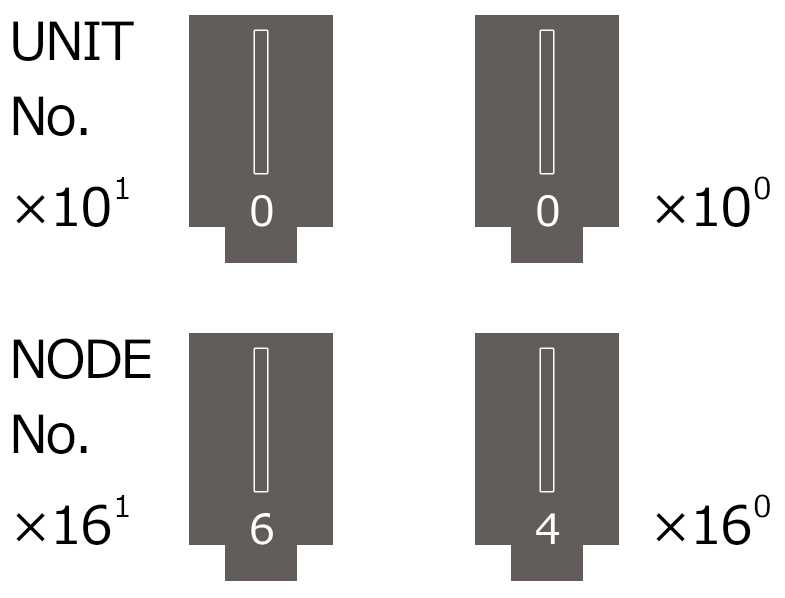
switch |
explanation |
Setting contents |
UNIT No. X10(1) |
Unit Number |
0 |
UNIT No. X10(0) |
0 |
|
NODE No. X16(1) |
Node Number *Usually set the last value of the IP |
6 |
NODE No. X16(0) |
4 |
Specify the end of the IP address with the front switch. There are two switches, 16(1) and 16(0), which are hexadecimal switches.
In this setting example, the last digit of the IP address is 100, which becomes "100" → "64" when converted to hexadecimal, so set "6" to 16(1) and "4" to 16(0).
|
If you select an ETN01 or similar unit for the Ethernet unit, you can use the rotary switch on the back of the unit to set the IP address. Use CX-Programmer to determine whether to enable the rotary switch or software switch settings. In this connection example, the software switch is selected. |
2.In "CX-Programmer", select "CX-Net (Network Settings)" from the [Tools] menu and start "CX-Net".
For more information about "CX-Net" and "CX-Programmer", please refer to the manufacturer's manual.
3.Select "Project" - "Create New" to create a project.
4.Select "Project" - "Add PLC" and in the dialog that appears, set the PLC model to "CV1M" and the network type to "Toolbus" and click "OK."
5.Select "Online Connection" from the "PLC" menu to connect to the PLC, select "Routing Table" - "Settings", and confirm that the local network number is set to 1.
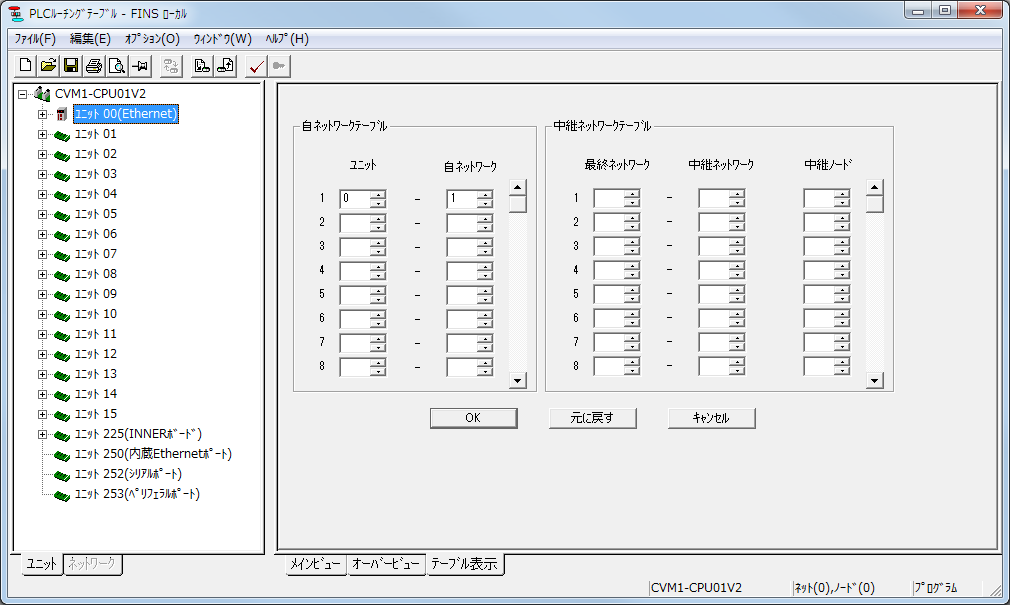
6.In "CX-Programmer", select "PLC" - "Online connection" to connect to PLC.
Double-click "I/O Table Unit Settings" from the tree to display the settings screen.
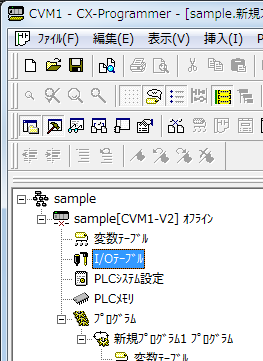
7.Create an I/O table from the displayed setting screen.
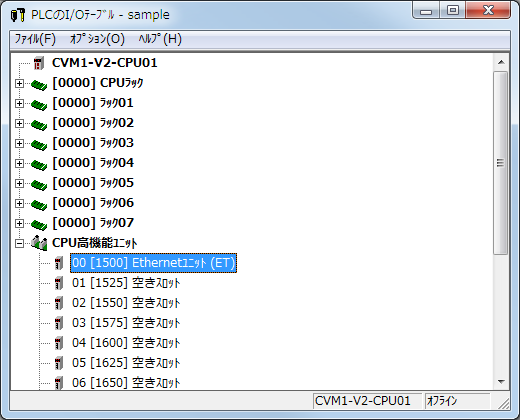
8.Right-click the added Ethernet unit, select "CPU Advanced Unit" from the menu, and display the setting screen. On the setting screen, perform the following settings.
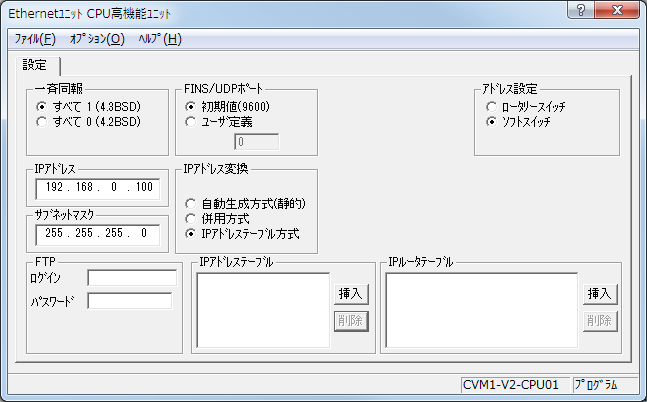
setting |
Setting contents |
IP address |
192.168.0.100 |
Subnet mask |
255.255.255.0 (Please set according to your environment) |
IP Address Translation |
IP address table method |
Address Settings |
Soft Switch |
9.Click the "Insert" button in the IP address table to set the address.
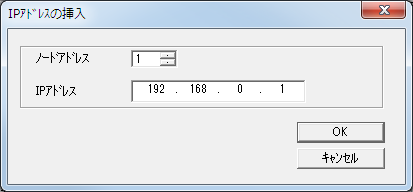
setting |
Setting contents |
Node Address |
1 |
IP address |
192.168.0.1 |
10.Go to "Options" - "Transfer (PC → PLC)" to display the transfer screen and write the settings.
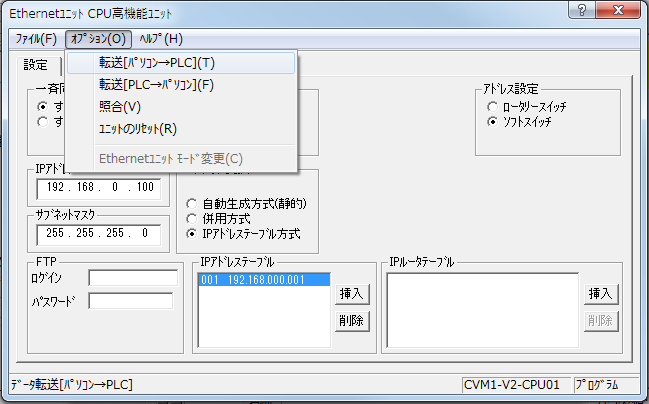
11.Click "OK" in the following dialog
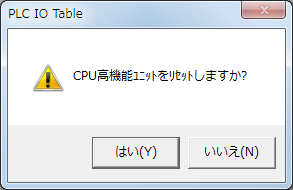
PC settings
Use the Server application to connect to the PLC for which you have set up communications.
1.Right-click "Application" - "Driver" in the tree and select Add Driver.
2.Select the following units from the displayed driver list and add them:

3.Open the properties of the added unit (U01) and click Communication Settings.
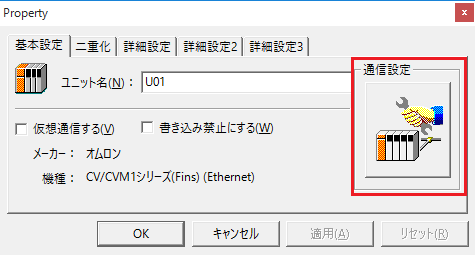
4.Configure the following in "PC Settings"
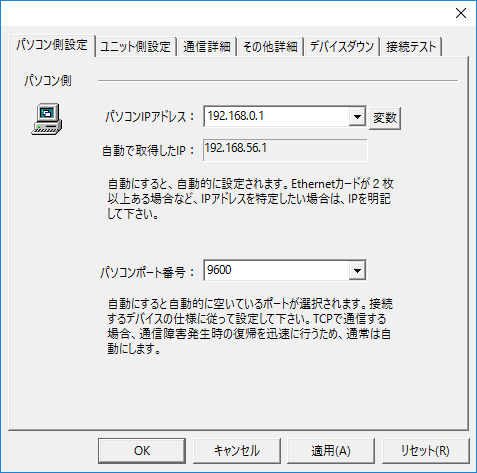
setting |
Setting contents |
Computer IP address |
192.168.0.1 |
Computer port number |
9600 |
5.Set the following in "Unit side settings"
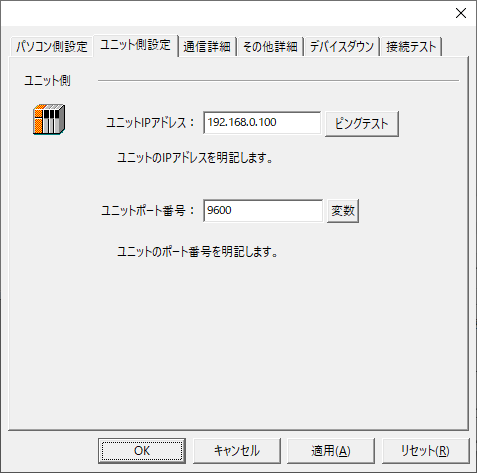
setting |
Setting contents |
Unit IP Address |
192.168.0.100 |
Unit Port Number |
9600 |
6.Select "Ping Test" to check if the ping goes through normally.
If you see a message like "Ping test is success~", the test was successful.
7.Select the protocol in "Communication Details"
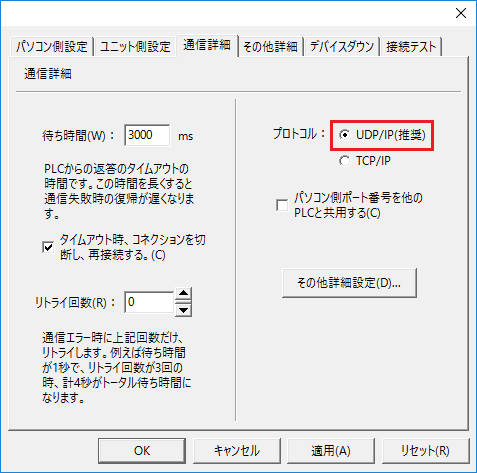
setting |
Setting contents |
protocol |
UDP (recommended) |
8.Perform a connection test to check the connection
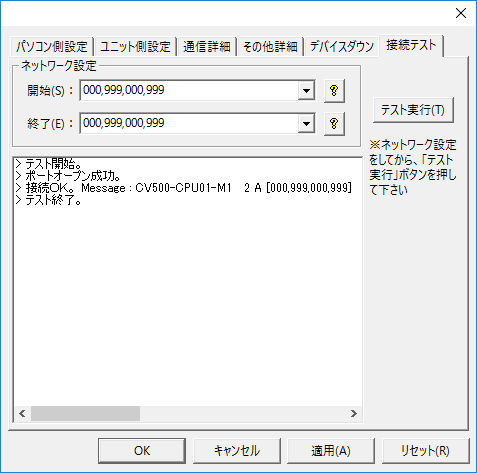
If you see a message such as "Connection OK," then the connection is confirmed.
|
When testing the connection and setting up the folder, do not forget to specify the node (network settings).
•Source/Destination Network Number: Please specify the network number. Specifying 000 will indicate your own network. •The source/destination node sets the node. If you specify 999, the last part of the IP address will be the node.
If you connect using the settings in this example, you can also connect by specifying "1,1,1,100".
|
